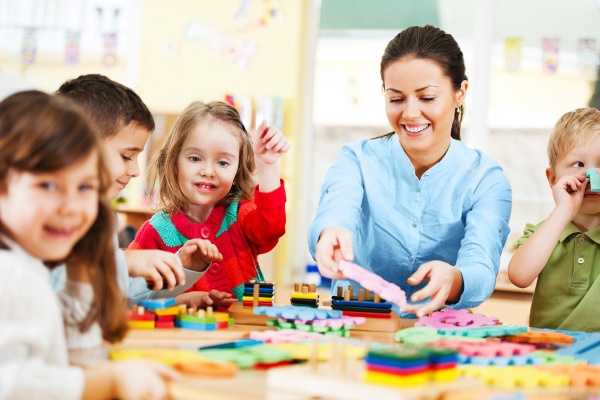Here are eight important skills that children can develop in child care:
-
Social Skills:
Child care environments offer opportunities for children to interact with peers and caregivers, fostering the development of social skills such as sharing, taking turns, cooperation, and empathy. Through play and group activities, children learn how to navigate social situations and build positive relationships with others. -
Communication Skills:
Child care settings encourage language development and communication skills through daily interactions with caregivers and peers. Children learn to express their thoughts, feelings, and needs verbally, as well as through nonverbal cues such as body language and facial expressions. -
Independence and Self-Reliance:
Child care promotes independence and self-reliance by providing children with opportunities to make choices, solve problems, and take on age-appropriate responsibilities. Through tasks like cleaning up toys, dressing themselves, and completing simple tasks, children gain confidence in their abilities and develop a sense of autonomy. -
Cognitive Skills:
Child care environments support cognitive development through engaging activities and opportunities for exploration and discovery. Children learn foundational skills such as counting, sorting, matching, and recognizing letters and numbers, laying the groundwork for future academic success. -
Fine and Gross Motor Skills:
Child care settings offer a variety of activities that promote the development of fine and gross motor skills. From drawing and painting to climbing, running, and playing games, children engage in activities that strengthen their muscles, improve coordination, and enhance physical dexterity. -
Creativity and Imagination:
Child care environments encourage creativity and imagination through art, music, dramatic play, and storytelling. Children have the opportunity to express themselves creatively, explore their interests, and engage in imaginative play that supports cognitive and emotional development. -
Problem-Solving Skills:
Child care settings provide opportunities for children to engage in problem-solving activities that challenge their thinking and encourage critical thinking skills. Whether it's figuring out how to build a block tower or resolving conflicts with peers, children learn to approach problems creatively and develop resilience in the face of challenges. -
Emotional Regulation:
Child care environments support the development of emotional regulation skills by providing a safe and nurturing space for children to express their feelings and learn coping strategies for managing emotions. Through supportive interactions with caregivers and opportunities for self-expression, children develop the skills they need to navigate a range of emotions effectively.
Overall, child care settings play a crucial role in supporting children's holistic development by providing opportunities for them to develop social, emotional, cognitive, and physical skills that are essential for success in school and beyond.


No comments yet